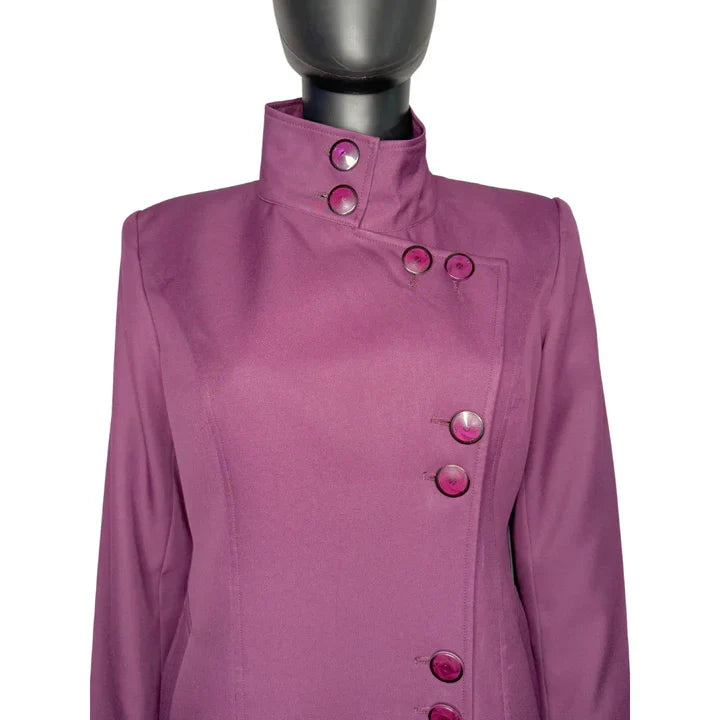In an era where fast fashion dominates the market, bespoke clothing offers a unique alternative that emphasizes individuality, quality, and craftsmanship. Bespoke clothing, also known as custom-made or tailor-made garments, is specifically designed and crafted to fit an individual's body and personal style. This practice, deeply rooted in tradition, offers several benefits that continue to make it a preferred choice for those seeking more than just off-the-rack options.
1. Perfect Fit and Comfort
One of the most significant advantages of bespoke clothing is the perfect fit it offers. Unlike mass-produced garments, which are designed to fit a standard size range, bespoke clothing is made to the exact measurements of the individual. This ensures that every aspect of the garment—from the shoulder width to the sleeve length—is tailored to fit the wearer perfectly. This level of customization not only enhances comfort but also improves the overall appearance of the clothing, making the wearer look and feel their best.
According to a survey conducted by the Custom Tailors & Designers Association (CTDA), 78% of respondents reported feeling more confident when wearing custom-made clothing, highlighting the psychological benefits of a perfect fit.
2. High-Quality Materials and Craftsmanship
Bespoke clothing is synonymous with high-quality materials and exceptional craftsmanship. Tailors typically use superior fabrics as highlighted in our guide on creating your own clothing, that are not only durable but also feel luxurious against the skin. The attention to detail in the construction of bespoke garments ensures that each piece is made to last, often outliving mass-produced alternatives.
Data from the luxury fashion market indicates that consumers are increasingly willing to invest in quality over quantity. A 2023 report by McKinsey & Company found that 55% of luxury consumers prioritize craftsmanship and quality in their purchasing decisions, underscoring a growing appreciation for well-made clothing.
3. Sustainability and Ethical Considerations
In recent years, there has been a growing awareness of the environmental and ethical issues associated with fast fashion. Bespoke clothing offers a more sustainable alternative, as it promotes the use of high-quality materials and ethical production practices. Custom-made garments are often produced in smaller quantities, reducing waste and the carbon footprint associated with mass production.
Moreover, the longevity of bespoke clothing means that consumers buy less frequently, further minimizing environmental impact. A study by the Ellen MacArthur Foundation found that extending the life of a garment by nine months can reduce its carbon, water, and waste footprint by around 20-30%.
4. Personal Expression and Unique Style
Bespoke clothing allows individuals to express their personal style through choice of colors and design details in a way that off-the-rack clothing cannot. Customers have the opportunity to choose every aspect of their garment, from fabric and color to design details and finishing touches. This level of personalization ensures that the final product is a true reflection of the wearer's tastes and preferences.
A 2022 survey by Deloitte found that 63% of consumers prefer brands that offer personalized products or services, highlighting a trend toward customization in various industries. Bespoke clothing, by its very nature, fulfills this desire for uniqueness and personal expression.
5. Long-Term Value
While the initial cost of bespoke clothing can be higher than mass-produced garments, the long-term value often justifies the investment. Bespoke garments are designed to last, providing years of wear with proper care. This durability, combined with the timeless style often associated with custom-made clothing, ensures that these pieces remain relevant and stylish for many years.
In conclusion, bespoke clothing offers a range of benefits that go beyond mere aesthetics. From perfect fit and superior craftsmanship to sustainability and personal expression, custom-made garments represent a worthwhile investment for those seeking quality, individuality, and long-term value in their wardrobe. As more consumers become aware of the advantages of bespoke clothing, it is likely that this age-old tradition will continue to thrive in the modern fashion landscape.

